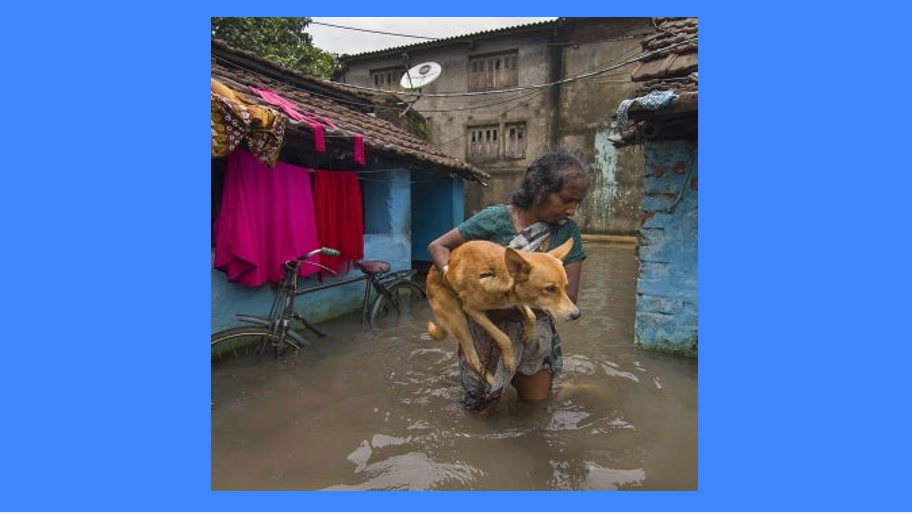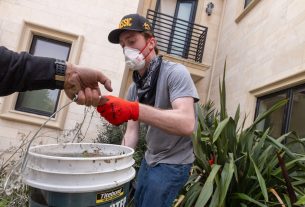Physical Climate Risk Assessments (PCRA) are an essential tool for financial service providers (FSPs) to quantify and prepare for an increasing range of climate-related threats.
Our previous blog outlined three core questions that an FSP should ask before embarking on a PCRA to ensure that it is strategically useful, rather than just a tick-box exercise. But once this planning is done, how does an FSP actually begin? And what are the best resources to ensure the exercise is as strategically useful as possible?
A decade ago, conducting a PCRA exercise was expensive, often involving global consultancies and proprietary data sets. Today, thanks to the rise of open-source climate risk data, PCRAs can be conducted far more affordably.
This shift has spawned a wide range of tools and partners to support inclusive FSPs—but navigating this landscape can be daunting; many of the resources require specialized skills in geospatial analysis or climate modeling and, with more than 120 open-source PCRA tools now on the market, it can be hard for inclusive FSPs to know which ones will be best for their needs.
In this blog we aim to help FSPs navigate this increasingly complex landscape and determine which of the newly-available resources might be the best fit.
For FSPs with narrow climate risk questions, Caribou Digital’s Space for Development is often a good entry point. The site’s helpful “GeoPlatform Finder” tool allows visitors to select a risk to assess, then narrow by topic and geography, before recommending one or two relevant online resources, with guidance on using them.
Beyond this tool, the landscape broadens quickly, potentially overwhelming the PCRA novice. We have identified three types of resources that inclusive FSPs may want to consider based on their PCRA objectives, technical capabilities and budget:
1. Open-Source Climate Risk Tools: Non-Technical
Most FSPs who are new to PCRAs would benefit from reviewing a few open-source platforms that do not require technical climate data skills, as listed in the chart below. These resources provide a high-level understanding of portfolio risk, helping inclusive FSPs to incorporate climate risk into management decisions. Below we list a few of the key non-technical options for inclusive FSP professionals, sorted by five of the most common reasons PCRAs are initiated, which should also be an important consideration when it comes to tool choice.
|
Tool |
Summary |
Firefighting Recent climate shocks exposed an urgent need to evaluate and reduce near-term climate risk |
Compliance Regulators are requiring quantification of risk for solvency and prudential management |
Financial Investors/ funders require a PCRA for purposes of due diligence and/or ESG reporting |
Pragmatic Leadership has identified the threat of increased climate risk and seeks a proactive plan |
Strategic Leadership wants to expand climate-smart products or access climate-specific funding |
| Climate Change Knowledge Portal | Free portal offering country-level flood, drought, and storm risk profiles; good starting point. |
X |
|
|
X |
X |
| CRiSTAL | Community-based tool for participatory climate risk screening, useful for engaging directly with branches and borrowers. |
X |
|
|
X |
|
| GRI Risk Viewer | Free global risk viewer offering multi-hazard maps for flood, cyclone, drought, good for portfolio screening. |
X |
|
X |
X |
X |
| Google Flood Hub | Free real-time flood monitoring and forecasts, highly usable for active support in flood-prone areas. |
X |
|
|
X |
|
| ND-GAIN Index | Country-level vulnerability and readiness scores, good for comparing climate exposure across markets. |
|
X |
X |
|
X |
| ThinkHazard | Simple, free screening tool for flood, cyclone, and drought hazards by country/district; baseline tool. |
X |
|
|
X |
X |
2. Open-Source Climate Risk Tools: Technical Expertise Required
To dive deeper into more complex climate risk data sets, the second option for inclusive FSPs is to work with an expert to leverage technical open-source platforms. While this approach allows FSPs to assess risk on a more granular level than non-technical platforms allow, it usually requires funding to hire a contractor with technical expertise in geospatial data analysis and climate modelling. Below are a few of the technical platforms most frequently used by inclusive FSPs who have access to technical expertise:
|
Tool |
Summary |
Firefighting |
Compliance |
Financial |
Pragmatic |
Strategic |
| CLIMADA | Open-source impact model to estimate damage from floods, cyclones, droughts; requires technical expertise. |
|
X† |
X† |
|
X† |
| Climate Impact Explorer | Free portal showing projected changes in flood, drought and cyclones by country; useful for scenario planning. |
|
|
X† |
|
X† |
| GFDRR Maps | Free hazard layers (floods, cyclones, drought) from the World Bank; good for portfolio overlays with GIS support. |
|
|
X* |
X* |
X* |
| NGFS Climate Scenarios Portal | Free climate and transition risk scenarios, regulator-aligned; requires modelling expertise. |
|
X† |
X† |
|
X† |
| OS-Climate | Open-source climate scenario platform for stress testing; requires modelling expertise. |
|
X† |
X† |
|
X† |
* = GIS/Geospatial analyst needed
† = Climate/impact modeling expertise needed
3. Specialized PCRA Service Providers
The third option, for FSPs who have access to more significant PCRA funding and require the most customized view of climate risk, is to work with a specialized PCRA service provider. Thanks to the increase in available climate risk data, these specialist providers are able to produce PCRAs for inclusive FSPs at a standard available only to a Tier 1 bank a decade ago, yet tailored to the inclusive FSP context.
| Tool | Summary | Firefighting | Compliance | Financial | Pragmatic | Strategic |
| BlueOrchard Analytics | Provides climate risk reporting tailored for emerging market FSPs to meet DFI and investor standards. |
|
X |
X |
|
|
| South Pole | Offers full-service climate risk analytics and reporting, plus support for climate finance proposals and donor engagement. |
|
X |
X |
X |
X |
| Syvl Earth | Uses satellite data to build hazard dashboards showing borrower exposure to floods, droughts, and cyclones. |
X |
X |
|
X |
X |
| YAPU Solutions | Helps MFIs integrate climate risk into loan origination and portfolio management with simple digital scoring systems. |
X |
X |
|
X |
X |
In addition to considering the above resources, FSPs may also consider contacting their National Meteorological Agency who can advise on experts and funders that are already active in PCRA exercises in the country. National or regional research universities may also be willing to contribute technical expertise or access to information that can further a PCRA exercise, whilst regional Development Finance Institutions (DFIs), as well as an FSP’s own investors and funders, are also likely to have recommendations based on their own portfolio-based PCRAs.
GenAI tools such as ChatGPT, Claude, Gemini and Grok can also provide useful direction and help to answer specific questions by drawing on many of the tools above. However given the potential for hallucinations, it is worth asking multiple services the same questions and then probing the answers, especially any differences that arise between tools.
While this guidance is intended to assist FSPs in conducting PCRAs with or without external support, apex bodies and FSP funders can support the new PCRA resource landscape in a variety of ways. This may include facilitating collaboration across the industry to help lower costs per FSP and close the gap between these tools and the priority questions FSPs have.
Ultimately, there are a wide range of tools now at the disposal of FSPs looking to embark on PCRAs. The good news is that PCRAs are no longer limited to large banks with deep technical teams; with an expanding set of open-source tools and service providers, inclusive FSPs who are most at risk of the impact of climate change are increasingly able to quantify and respond to it too.
The time is right to ensure that both FSP portfolios, and the customers they serve, are more resilient, and that the gains of financial inclusion are preserved for the benefit of all – something our upcoming work will unpack in more detail.



